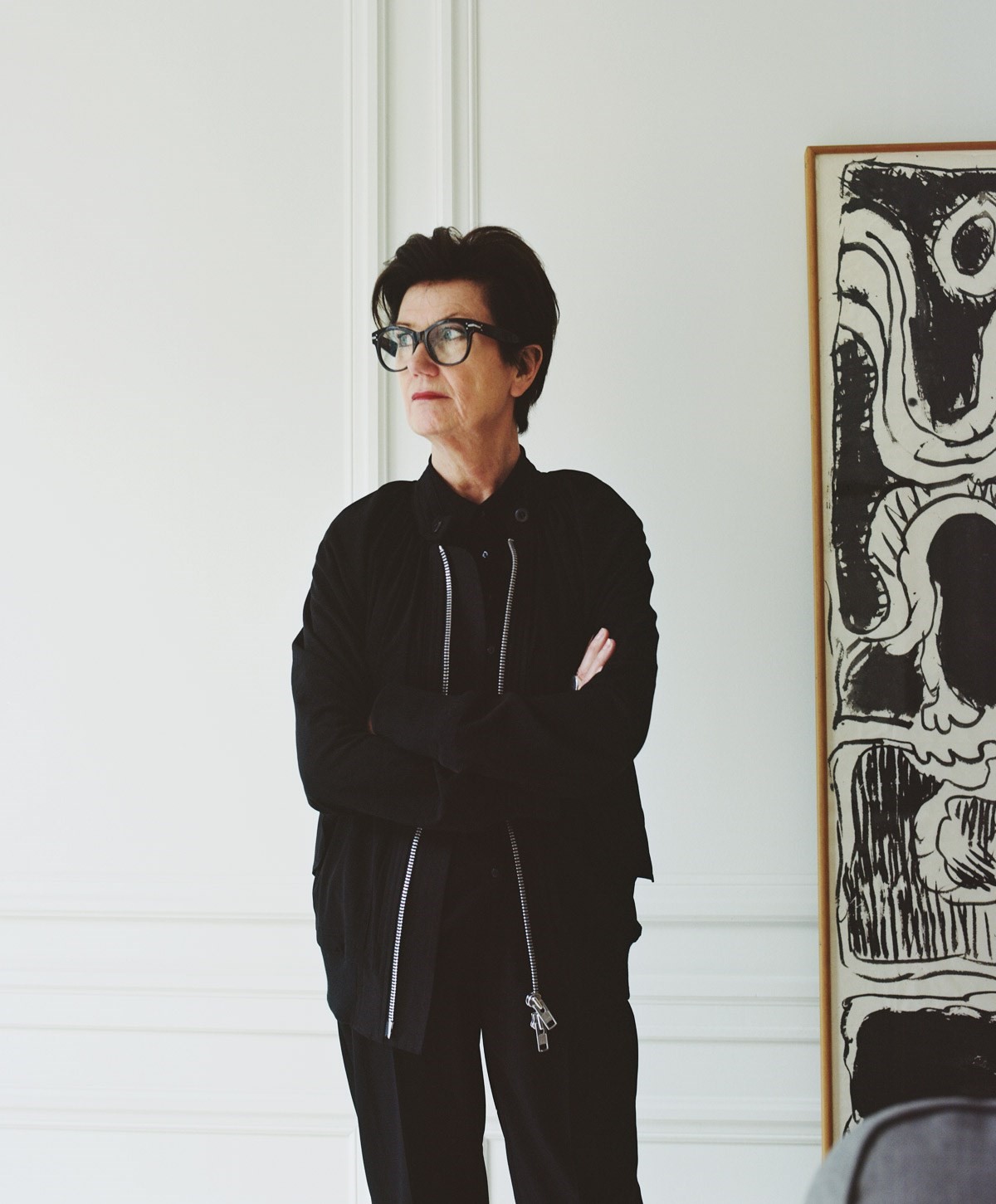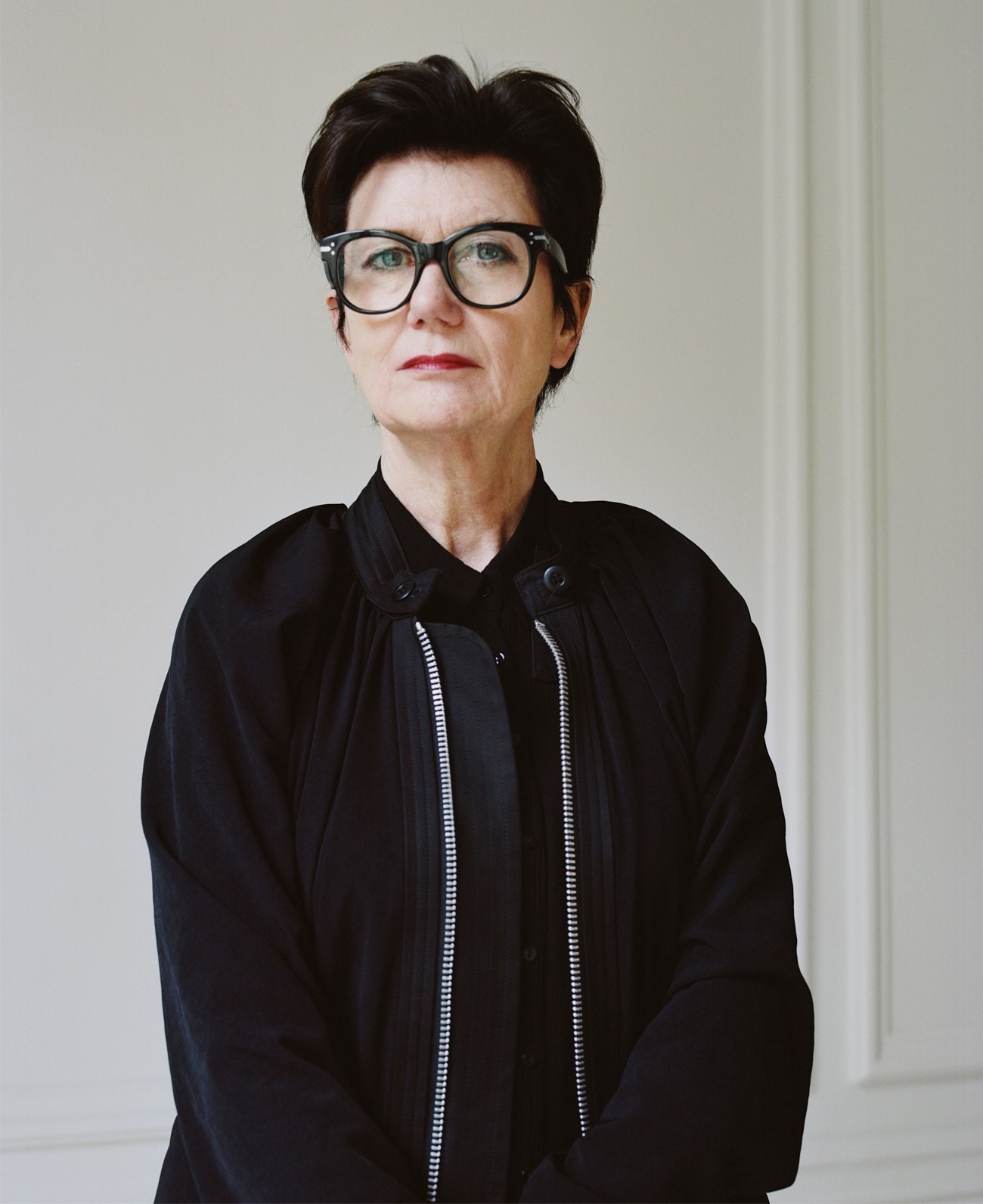Linda Loppa, who turned 60 this spring, is one of the most influential and respected voices in contemporary fashion – and has been for over four decades. And yet, when we first speak over the phone one summer's morning, she politely insists that she “had absolutely no attraction” to the medium as a young woman. “Both my father and my grandfather were tailors, and I saw them suffering at the mercy of their sewing machines,“ she says. “I just wasn’t interested. I wanted to become an architect or design furniture or something.” Despite her initial resistance, Loppa has established a superlative reputation for educating design students with a collaborative, solution-based ethos and commercial savvy attained from a solid grounding in retail. “Maybe it was destiny then,” she offers, “or, at least, a happy coincidence.”
Happenstance or not, Loppa eventually enrolled at the pioneering Royal Academy of Fine Arts in her hometown of Antwerp to study fashion design, from which she graduated in 1971, and subsequently scored a junior role at Barston's, a local Belgian outerwear company that specialised in the production of raincoats. “Yes, I was quite into fashion at that point,” says Loppa, adding, “though, perhaps it was more about the sharing of ideas.”
Nowhere do new design ideas play out more literally than in a shop – and in 1978, she added another string to her bow and opened a cutting-edge clothing boutique, aptly titled, Loppa. Here, she gained a broader understanding of the industry and was able to flex her intuitive eye for exciting new expressions in fashion, championing avant-garde labels such as Gianni Versace, Genny and Dolce and Gabbana, which were by no means en vogue in the city of Antwerp. “I was selling quite a few Italian brands at that time; nobody bought them there in Belgium you see,” she explains. “But I thought the pieces were beautiful and that’s what mattered to me then.”

Loppa’s foray into fashion education seemed, yet again, to play out rather organically, as she notes – “It started as a coincidence really. Behind my shop there was a little garden, and students from the Academy would often come there to talk with me, we would chat about the collections and the state of fashion in general,” she says. “Then one day, I was at one of the graduate shows at the Academy and one of the school’s teachers asked me, ‘why do you not teach here already, as you have such a keen interest?’ And, well, the rest is history.”
During her lauded, 25-year tenure at the Royal Academy, Loppa acted as a catalyst for what can only be described as a revolution, placing Belgium’s progressive fashion apex on a global stage for the first time, while simultaneously reinstating its prowess. When pressed to reflect upon this period, she confesses humbly, “I never really considered it to be teaching. To me, it was more about finding solutions for the students’ ideas through continued conversation. They all knew their own minds.” Though, perhaps her all-star alumni, which includes luminaries such as Raf Simons, Veronique Branquinho, Haider Ackermann and Kris Van Assche – speaks for itself.
By the time Loppa had parted ways with the Academy in 2006 (handing over her Professorship to the highly capable hands of Walter Van Beirendonck), her commitment to Belgian fashion had stretched far beyond the institution's four walls, having simultaneously managed the Flanders Fashion Institute and MoMu, in addition to spearheading the inception and realisation of the esteemed ModeNatie Forum. And so, in 2007, she embarked on a dynamic new challenge and relocated to Florence to take up a directorship at the prized Polimoda International Institute of Fashion Design and Marketing. As from January 2016, Loppa has operated under the new title of director of the university's Strategy & Vision Platform, and despite maintaining solid roots in Florence, has subsequently moved to Paris to strengthen the project, where she feels right at home. “Florence made me more mature, but [pauses] mama mia, I love Paris,” she adds. “I go to all of the runway shows, I talk to people before and after to discover their points of view, fashion feels alive here still and I’m very happy to be here, it's home to me now.”
As if to further validate her relevance in the current fashion climate, Loppa points out that just the other day she was enjoying a conversation with Demna Gvasalia. “When he first started out, I thought that what he was creating felt too Margiela, and I told him that! But the stuff he’s designing now for Balenciaga is so very beautiful – and I told him that too,” she exclaims. “But many young designers ask me whether they can call me to discuss their ideas, and I always say ‘yes, of course’, I just love it – it’s what moves me. I mean, is this really working? I feel very fortunate.”
She's equally buoyant when musing about her enduring motivation, modern art. "It is my inspiration, I could live without fashion, but not art, and I think my husband feels the same way," she jests. "Though I do have a wardrobe with some very rare, very early and very beautiful Margiela that's so special to me. I always say that 'I refuse to live in the past', but I have such a history with some of his garments. Perhaps one day I'll donate the pieces to a museum – they're like art to me, after all."
With special thanks to Polimoda and Linda Loppa.
